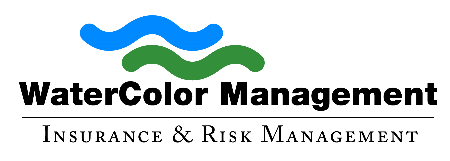
There are many problems associated with wastewater treatment plants, including environmental concerns and inefficient processes. Recent innovations show, though, that there is much room for improvement in modern treatment methods. Still, several key operational challenges affect the daily function of treatment plants throughout the U.S., and these problems will only worsen if they remain unaddressed. What are some challenges currently facing wastewater treatment facilities, and how can professionals in this field step up to find solutions? Learn about the biggest issues affecting plants’ operations today.
Inadequate Training
It’s unfortunately true that many professionals working in the wastewater treatment field have not received adequate training for their positions. There are many known pathogens and other biological hazards found in treatment facilities, but staff members aren’t always trained in proper safety procedures before they are put to work. This can lead to potential injuries as well as preventable mistakes. The problem should be avoided by providing all new hires with a comprehensive training program covering safety protocol and other information that’s essential to performing key tasks.
Budgetary Concerns
Another common concern emerging amongst wastewater treatment facilities is the lack of funding that many public works departments must contend with. Budgetary concerns limit facilities’ ability to function and contribute to many other problems, too. It’s important that plants maintain water treatment insurance even if the budget is tight. A water treatment insurance policy can mitigate the most common liabilities in treatment plants and provide legal protection to facility staff, too. Budget constraints may force some facilities to minimize expenses, but insurance isn’t expendable. Plants should look for other costs to eliminate.
Physical Footprint
As populations change and grow, many people have critiqued the large physical footprint associated with plants that utilize an activated sludge treatment model. This is the primary mode of wastewater treatment in the U.S., so the problem affects most plants. Some jurisdictions have proposed that new plants follow a different model of treatment that utilizes a smaller physical footprint. Aeration basins and electrochemical coagulation offer viable alternatives that may save space and minimize environmental impact. This is particularly attractive to communities that want to minimize the expenses associated with constructing a new wastewater treatment facility.
Sludge Management
For those plants that still utilize activated sludge to treat wastewater, a different set of problems have become apparent. Many plants produce an excess of this sludge, and disposal is often difficult because it is considered a hazardous material. Luckily, there are some innovative new options that might provide a solution. Sludge byproducts can be used, for example, in some agricultural applications. Modernized treatment technology such as jet aeration may also be able to massively reduce the amount of sludge that’s produced during the wastewater treatment process.
About Watercolor Management
Watercolor Management has insured the water industry for over 30 years. Our policies include unlimited defense cost coverage in the event of a lawsuit against you. Call us at (855) 929-0824 or email info@watercolormanagement.com for a quick quote for your Water Business Professional, Products/Completed operations, Pollution and General Liability Insurance.




